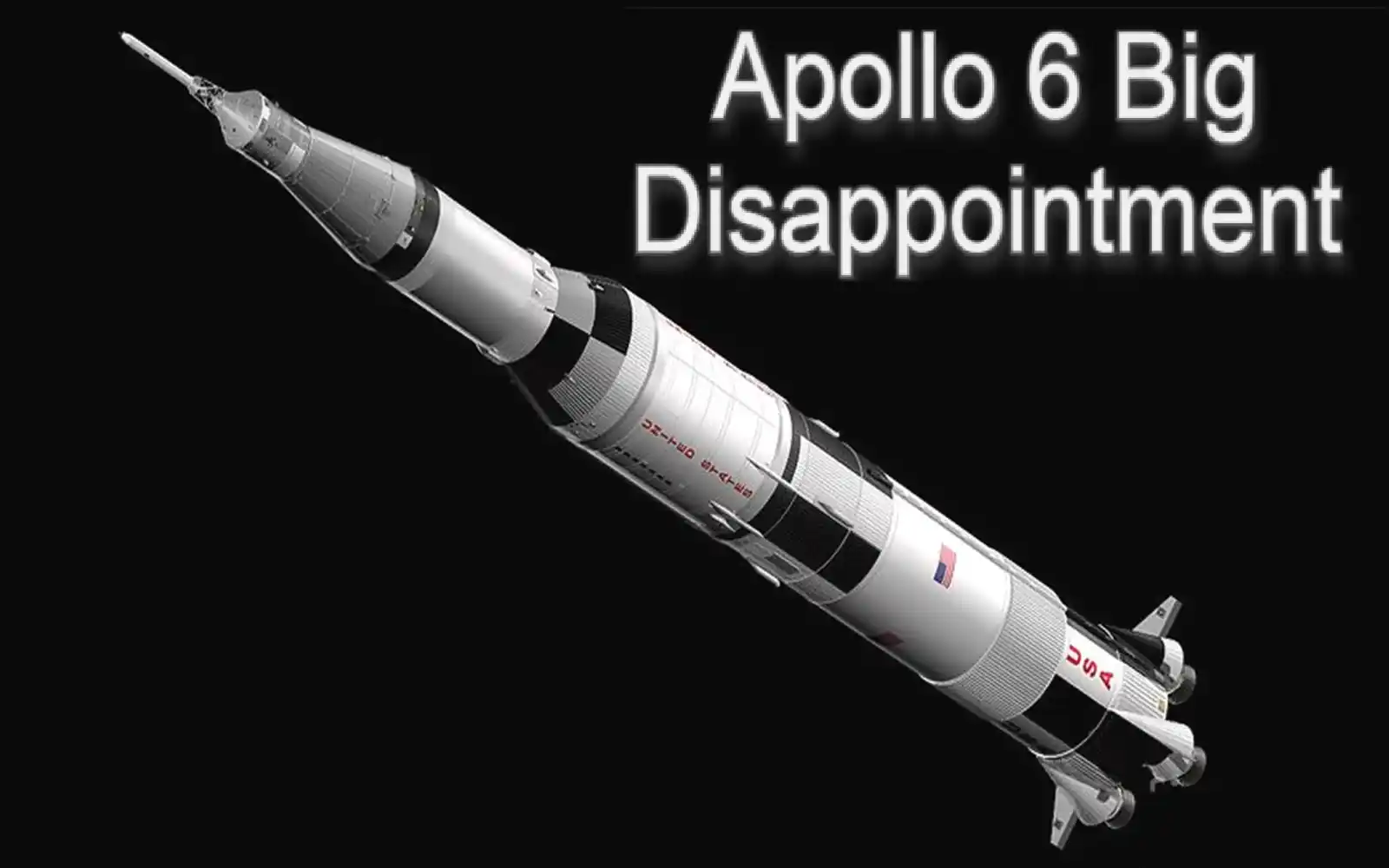
Apollo Moon Landing
In April 1968, the launch of Apollo 6, an unmanned mission, proved to be a significant disappointment. This event has made people question the authenticity of the Apollo moon landings, suggesting that they may have been faked by The NASA.
Apollo 6, the second test of the mighty Saturn V rocket, took off on the 4th of April, 1968. However, just two minutes into the flight, complications arose. Two of the five second stage engines shut down prematurely, causing a setback. In order to compensate for the reduced thrust, the remaining three engines burned for an extended period. Despite this effort, it was still insufficient, prompting the utilization of the third stage to propel Apollo 6 into orbit.
During the crucial third stage of the mission, intended to propel the spacecraft into Translunar Injection (TLI) and simulate a maneuver to reach the moon, a major setback occurred. Several pipes were damaged, causing leaks and ultimately resulting in the failure of this crucial stage.
This unexpected turn of events left the flight controllers in shock and disbelief, especially considering the successful flight of the first Saturn V in November 1967. With no other choice, the decision was made to disconnect the Apollo 6 from the Saturn V rocket. The spacecraft had to rely on its own propulsion to ascend to an altitude of only 14,000 miles (22,500 km), falling significantly short of the intended test altitude by more than 377,500 miles.
Despite these challenges, the Apollo 6 managed to make its way back to Earth. After a troubled flight lasting 9 hours and 57 minutes, the spacecraft successfully splashed down in the Pacific Ocean. While the mission may have faced serious setbacks, the safe return of the Apollo 6 was a small victory in an otherwise troubled endeavour.
Apollo 7, launched on 11 October 1968, marked the inaugural manned Apollo flight and operated in Low Earth Orbit. This mission utilized the Saturn II rocket, which was notably lighter than the Saturn V.
Source: 1968 Maantaxi Landt Op De Maan
